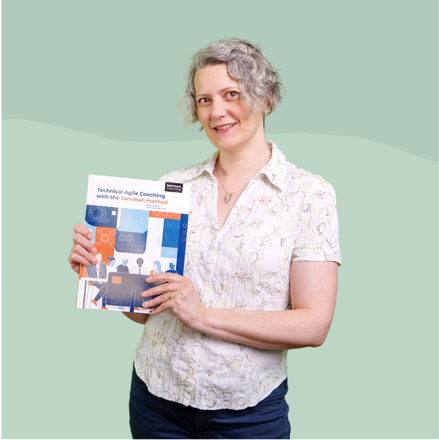I’ve just spent a couple of days at "GoWest Nordic Venture Capital Forum" in Gothenburg, (where I live), which aims to bring together entrepreneurs, investors and all kinds of other organisations in the general startup ecosystem. Although I have attended hundreds of...
Barbie
I very rarely go to the cinema, but this weekend I took my two teenage daughters to see Barbie. Mostly it was fun and silly but several scenes had me in tears. Now I want to go see it with my mother, actually. What really got me was the depictions of the different...
I’ve Gone Independent
After three years of close collaboration with ProAgile I felt it was time to strike out alone as an independent Technical Coach. I continue to recommend my former colleagues at ProAgile - if you're looking for an agile coach or some training in agile methods...
Samman Coaching in 2021
Photo by Designecologist from Pexels I am convinced that the world needs more technical coaches. Practices like Refactoring and Test-Driven Development don’t just happen by themselves. It takes quite an investment in time and effort for most developers...
A new Technical Agile Coach at ProAgile
Note: this article was first published on ProAgile's blog. I’ve just joined ProAgile, and it feels great. I’ve known many of the other coaches for some years, and admire their work. My background is as a software developer, and I specialize in the technical side of...
Technical Coach with Praqma
Note: this was originally posted on Praqma's blog The life of a consultant has drawn me back, but perhaps surprisingly, this time it’s not a return to my one-person firm. Rather than reinvigorating Bache Consulting, I’ve decided to join Praqma, the Continuous Delivery...
Pluralsight course on the Coding Dojo
I'm very pleased to announce I've just published my first Pluralsight course - "Coding Dojo: Test Driven Development"! It's based on the material in my book, converted to a video-friendly format along with audio commentary. If you purchase a subscription to the...
The Coding Dojo Handbook is finished!
This week I published my first book! I've been writing "The Coding Dojo Handbook" since last September, and publishing it as a work-in-progress on Leanpub.com. This week I decided it was time to declare it completed, since I think it hangs together as a whole book,...
Coding is Like Cooking moves to a new URL
I'm pleased to announce a new home for my blog: henceforth I will be blogging on the url "coding-is-like-cooking.info". Please update your RSS feeds to point at the new site! At some point I plan to delete my blogger account, since all the articles have been...
Launch of my company website
I’m very excited to announce the launch of my company website, at http://bacheconsulting.com. The site has information about the coaching and training I offer, links to this blog, my videos on YouTube, and my twitter feed. My hope is that it gives an indication of my...

Hi – I´m Emily!
I am a consultant with Bache Consulting and chair of the Samman Technical Coaching Society. As a technical coach I work with software development organizations who want to get better at technical practices like Test-Driven Development, Refactoring and Incremental Design. I also write books and publish videos. I live in Gothenburg, Sweden, although I am originally from the UK.

Practical Coaching –
Beyond the Blog
If you’re enjoying the insights shared here on the blog, you might enjoy my training too.
“Technical Agile Coaching with the Samman Method” offers a practical guide to improving how developers collaborate and write code. You’ll learn hands-on techniques for Test-Driven Development, Refactoring, and effective team coaching.
To learn more about the book, just click the link below.
Blog categories





